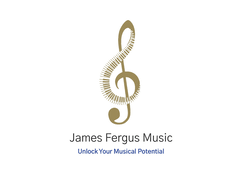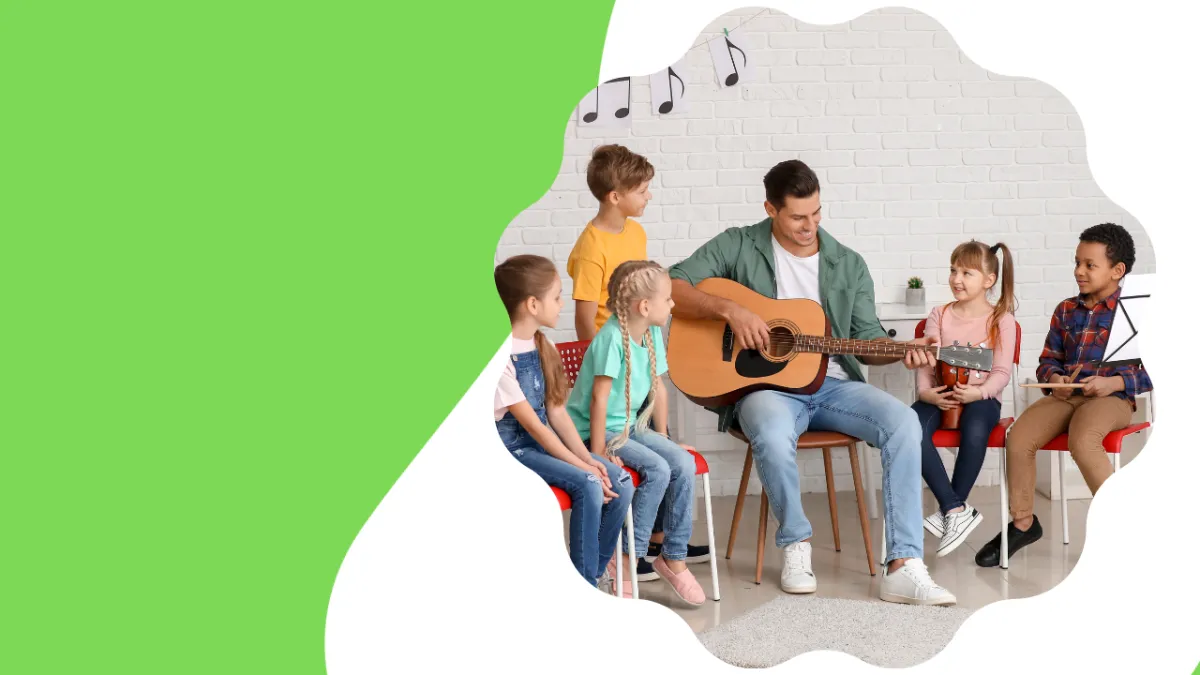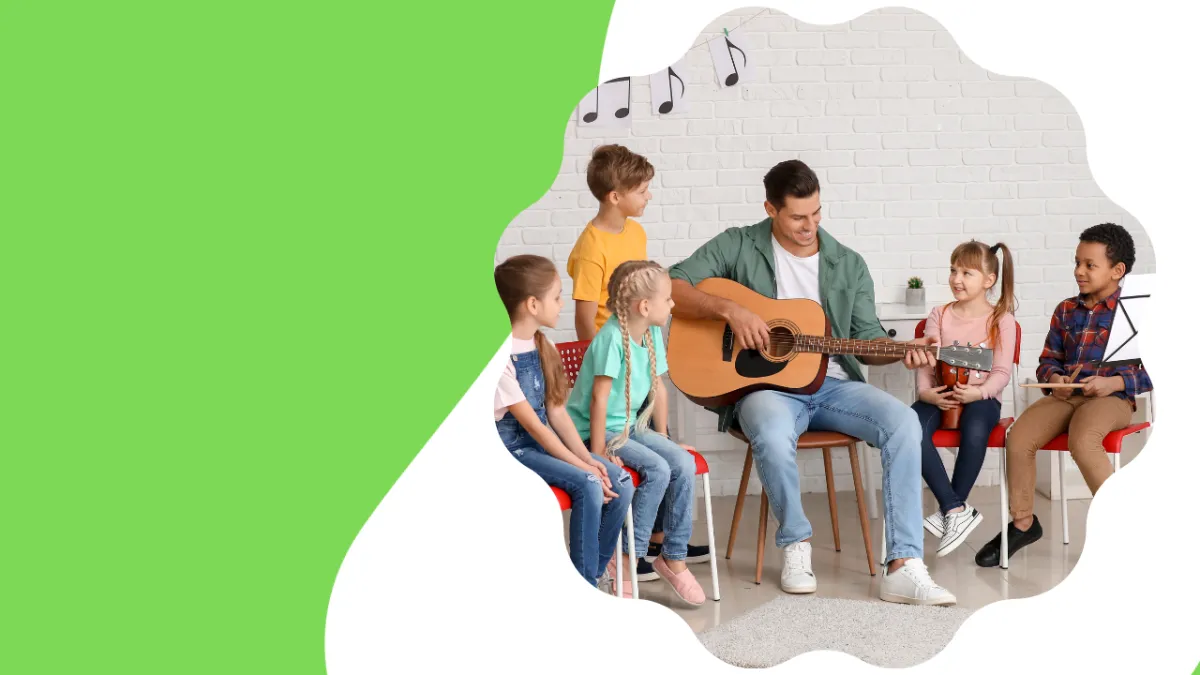
James Fergus Music
Classical piano lessons Blog
Welcome to the James Fergus Music Blog, your go-to resource for all things piano and music education! Here, you'll find a wealth of articles designed to inspire and guide you on your musical journey, whether you're a complete beginner or an experienced pianist looking to refine your skills. Our blog covers a diverse range of topics, from detailed comparisons between classical and pop music to practical tips for incorporating music into your busy life.
At James Fergus Music, we believe that learning to play the piano is a rewarding experience at any age, and we're here to support you every step of the way. Explore our latest posts, discover helpful practice strategies, and stay informed about the benefits of musical education. Dive into our blog to uncover insights, gain new perspectives, and connect with a community of music enthusiasts. We're glad you're here, and we hope you find our content both informative and inspiring.


Can I Start Learning the Piano as an Adult or Is It Too Late?

Is It Too Late To Learn?
Learning to play the piano is often associated with childhood, with images of young children taking lessons and performing at recitals. However, the question of whether it's too late to start learning the piano as an adult is one that many people ponder. The truth is, it's never too late to start learning the piano. Adults bring a wealth of experience, discipline, and dedication to the learning process, making them uniquely equipped to tackle this rewarding endeavour. In this article, we will explore why classical music is an excellent starting point for adult learners, how the basics of the piano can be grasped quickly, and the numerous benefits of learning the piano at any age.
Why Classical Music Is a Good Place to Start
1. A Strong Foundation
Classical music provides a solid foundation for any aspiring pianist. The genre encompasses a wide range of technical skills and musical concepts that are essential for any pianist, regardless of their preferred style. By starting with classical music, adult learners can develop a comprehensive understanding of musical notation, rhythm, dynamics, and articulation. These elements are fundamental to playing any type of music, and mastering them early on sets the stage for future success.
2. Structured Learning
Classical music is often associated with a structured approach to learning. The repertoire is vast and varied, offering pieces that range from simple to highly complex. This structured progression allows learners to build their skills gradually, starting with simpler pieces and moving on to more challenging compositions as they gain confidence and proficiency. This methodical approach helps adult learners to see tangible progress, which can be incredibly motivating.
3. Appreciation and Understanding
Learning classical music can deepen your appreciation for the art form. As an adult, you might already have a certain level of appreciation for classical pieces you've heard in movies, concerts, or other settings. Studying these pieces not only allows you to play them but also provides insights into the historical context and compositional techniques used by great composers like Bach, Beethoven, and Mozart. This enriched understanding can make the learning process more engaging and fulfilling.
How the Basics of the Piano Can Be Grasped Quickly
1. Immediate Results
One of the most encouraging aspects of learning the piano is that you can start playing simple melodies and songs relatively quickly. Unlike instruments that require extensive practice just to produce a single note, the piano allows beginners to create music from their very first lesson. The layout of the piano keys is intuitive, with each key representing a specific pitch, making it easier to understand and remember notes and chords.
2. Visual Learning
The piano's keyboard is a visual and tactile map of the musical scale, which makes it easier to grasp musical concepts. The repetition of the same pattern of keys across the keyboard helps learners quickly understand scales, intervals, and chords. This visual aspect is particularly helpful for adult learners who can leverage their cognitive abilities to recognise patterns and apply them to their playing.
3. Accessible Resources
The internet is brimming with resources for learning piano, from instructional videos and online courses to sheet music and interactive apps. Adult learners can take advantage of these tools to supplement their lessons and practice independently. Many resources are designed to help beginners understand the basics quickly, providing step-by-step instructions and exercises that make learning enjoyable and efficient.

The Benefits of Learning Piano as an Adult
1. Cognitive Benefits
Learning to play the piano can have significant cognitive benefits for adults. Studies have shown that musical training can improve memory, enhance spatial-temporal skills, and boost overall brain function. These benefits are particularly valuable as we age, helping to keep the mind sharp and engaged. Additionally, learning to read music and coordinate both hands to play different parts can enhance multitasking abilities and improve concentration.
2. Emotional and Mental Well-Being
Playing the piano can be a powerful tool for emotional and mental well-being. The act of playing music can be deeply therapeutic, providing an outlet for expression and creativity. It can reduce stress, alleviate anxiety, and promote relaxation. For many adults, playing the piano becomes a form of meditation, offering a break from the pressures of daily life and a chance to focus on something truly enjoyable.
3. Personal Fulfilment
For many adults, learning to play the piano fulfils a lifelong dream or rekindles a passion for music. The sense of accomplishment that comes from mastering a piece of music or performing for others can be incredibly rewarding. It provides a sense of purpose and achievement that is often lacking in other areas of life. Whether you're playing for yourself or sharing your music with others, the joy and satisfaction that come from playing the piano are unparalleled.
Conclusion
In conclusion, it's never too late to start learning the piano. As an adult, you bring a wealth of experience, discipline, and a unique perspective to your musical journey. Starting with classical music can provide a strong foundation and structured learning path, while the basics of the piano can be grasped quickly, allowing for immediate musical expression. The cognitive, emotional, and personal benefits of learning the piano are profound, making it a rewarding and enriching pursuit at any age. So, if you've ever dreamed of playing the piano, now is the perfect time to start. Embrace the journey, and discover the joy and fulfilment that comes from making music.
We're thrilled that you've enjoyed our blogs and are eager to explore the world of music even further. The journey doesn't have to end here! If you're yearning to expand your musical horizons, we have an exciting opportunity for you.
Whether you're a beginner eager to learn the basics or an experienced musician seeking to refine your skills, our free music class is perfect for you. Unleash your creativity, discover new sounds, and cultivate a deeper understanding of music and schedule a free music class with us by clicking the button below!

Can I Start Learning the Piano as an Adult or Is It Too Late?

Is It Too Late To Learn?
Learning to play the piano is often associated with childhood, with images of young children taking lessons and performing at recitals. However, the question of whether it's too late to start learning the piano as an adult is one that many people ponder. The truth is, it's never too late to start learning the piano. Adults bring a wealth of experience, discipline, and dedication to the learning process, making them uniquely equipped to tackle this rewarding endeavour. In this article, we will explore why classical music is an excellent starting point for adult learners, how the basics of the piano can be grasped quickly, and the numerous benefits of learning the piano at any age.
Why Classical Music Is a Good Place to Start
1. A Strong Foundation
Classical music provides a solid foundation for any aspiring pianist. The genre encompasses a wide range of technical skills and musical concepts that are essential for any pianist, regardless of their preferred style. By starting with classical music, adult learners can develop a comprehensive understanding of musical notation, rhythm, dynamics, and articulation. These elements are fundamental to playing any type of music, and mastering them early on sets the stage for future success.
2. Structured Learning
Classical music is often associated with a structured approach to learning. The repertoire is vast and varied, offering pieces that range from simple to highly complex. This structured progression allows learners to build their skills gradually, starting with simpler pieces and moving on to more challenging compositions as they gain confidence and proficiency. This methodical approach helps adult learners to see tangible progress, which can be incredibly motivating.
3. Appreciation and Understanding
Learning classical music can deepen your appreciation for the art form. As an adult, you might already have a certain level of appreciation for classical pieces you've heard in movies, concerts, or other settings. Studying these pieces not only allows you to play them but also provides insights into the historical context and compositional techniques used by great composers like Bach, Beethoven, and Mozart. This enriched understanding can make the learning process more engaging and fulfilling.
How the Basics of the Piano Can Be Grasped Quickly
1. Immediate Results
One of the most encouraging aspects of learning the piano is that you can start playing simple melodies and songs relatively quickly. Unlike instruments that require extensive practice just to produce a single note, the piano allows beginners to create music from their very first lesson. The layout of the piano keys is intuitive, with each key representing a specific pitch, making it easier to understand and remember notes and chords.
2. Visual Learning
The piano's keyboard is a visual and tactile map of the musical scale, which makes it easier to grasp musical concepts. The repetition of the same pattern of keys across the keyboard helps learners quickly understand scales, intervals, and chords. This visual aspect is particularly helpful for adult learners who can leverage their cognitive abilities to recognise patterns and apply them to their playing.
3. Accessible Resources
The internet is brimming with resources for learning piano, from instructional videos and online courses to sheet music and interactive apps. Adult learners can take advantage of these tools to supplement their lessons and practice independently. Many resources are designed to help beginners understand the basics quickly, providing step-by-step instructions and exercises that make learning enjoyable and efficient.

The Benefits of Learning Piano as an Adult
1. Cognitive Benefits
Learning to play the piano can have significant cognitive benefits for adults. Studies have shown that musical training can improve memory, enhance spatial-temporal skills, and boost overall brain function. These benefits are particularly valuable as we age, helping to keep the mind sharp and engaged. Additionally, learning to read music and coordinate both hands to play different parts can enhance multitasking abilities and improve concentration.
2. Emotional and Mental Well-Being
Playing the piano can be a powerful tool for emotional and mental well-being. The act of playing music can be deeply therapeutic, providing an outlet for expression and creativity. It can reduce stress, alleviate anxiety, and promote relaxation. For many adults, playing the piano becomes a form of meditation, offering a break from the pressures of daily life and a chance to focus on something truly enjoyable.
3. Personal Fulfilment
For many adults, learning to play the piano fulfils a lifelong dream or rekindles a passion for music. The sense of accomplishment that comes from mastering a piece of music or performing for others can be incredibly rewarding. It provides a sense of purpose and achievement that is often lacking in other areas of life. Whether you're playing for yourself or sharing your music with others, the joy and satisfaction that come from playing the piano are unparalleled.
Conclusion
In conclusion, it's never too late to start learning the piano. As an adult, you bring a wealth of experience, discipline, and a unique perspective to your musical journey. Starting with classical music can provide a strong foundation and structured learning path, while the basics of the piano can be grasped quickly, allowing for immediate musical expression. The cognitive, emotional, and personal benefits of learning the piano are profound, making it a rewarding and enriching pursuit at any age. So, if you've ever dreamed of playing the piano, now is the perfect time to start. Embrace the journey, and discover the joy and fulfilment that comes from making music.
Contact Us
Open Hours
Social Media
Monday - Friday: 8:00 AM - 5:00 PM
Saturday: 8:00 AM - 5:00 PM
Sunday: 8:00 AM - 5:00 PM

James Fergus Music
Classical piano lessons Blog

Our mission (other than repairing hail damage) is to inform you with relevant, factual and accessible content about automotive hail damage repair and paintless dent removal. If your vehicle is ever ravaged by a hail storm, you'll find everything you need to know before having the hail damage repaired. Speak with a certified technician for a quick response.

Can I Start Learning the Piano as an Adult or Is It Too Late?

Is It Too Late To Learn?
Learning to play the piano is often associated with childhood, with images of young children taking lessons and performing at recitals. However, the question of whether it's too late to start learning the piano as an adult is one that many people ponder. The truth is, it's never too late to start learning the piano. Adults bring a wealth of experience, discipline, and dedication to the learning process, making them uniquely equipped to tackle this rewarding endeavour. In this article, we will explore why classical music is an excellent starting point for adult learners, how the basics of the piano can be grasped quickly, and the numerous benefits of learning the piano at any age.
Why Classical Music Is a Good Place to Start
1. A Strong Foundation
Classical music provides a solid foundation for any aspiring pianist. The genre encompasses a wide range of technical skills and musical concepts that are essential for any pianist, regardless of their preferred style. By starting with classical music, adult learners can develop a comprehensive understanding of musical notation, rhythm, dynamics, and articulation. These elements are fundamental to playing any type of music, and mastering them early on sets the stage for future success.
2. Structured Learning
Classical music is often associated with a structured approach to learning. The repertoire is vast and varied, offering pieces that range from simple to highly complex. This structured progression allows learners to build their skills gradually, starting with simpler pieces and moving on to more challenging compositions as they gain confidence and proficiency. This methodical approach helps adult learners to see tangible progress, which can be incredibly motivating.
3. Appreciation and Understanding
Learning classical music can deepen your appreciation for the art form. As an adult, you might already have a certain level of appreciation for classical pieces you've heard in movies, concerts, or other settings. Studying these pieces not only allows you to play them but also provides insights into the historical context and compositional techniques used by great composers like Bach, Beethoven, and Mozart. This enriched understanding can make the learning process more engaging and fulfilling.
How the Basics of the Piano Can Be Grasped Quickly
1. Immediate Results
One of the most encouraging aspects of learning the piano is that you can start playing simple melodies and songs relatively quickly. Unlike instruments that require extensive practice just to produce a single note, the piano allows beginners to create music from their very first lesson. The layout of the piano keys is intuitive, with each key representing a specific pitch, making it easier to understand and remember notes and chords.
2. Visual Learning
The piano's keyboard is a visual and tactile map of the musical scale, which makes it easier to grasp musical concepts. The repetition of the same pattern of keys across the keyboard helps learners quickly understand scales, intervals, and chords. This visual aspect is particularly helpful for adult learners who can leverage their cognitive abilities to recognise patterns and apply them to their playing.
3. Accessible Resources
The internet is brimming with resources for learning piano, from instructional videos and online courses to sheet music and interactive apps. Adult learners can take advantage of these tools to supplement their lessons and practice independently. Many resources are designed to help beginners understand the basics quickly, providing step-by-step instructions and exercises that make learning enjoyable and efficient.

The Benefits of Learning Piano as an Adult
1. Cognitive Benefits
Learning to play the piano can have significant cognitive benefits for adults. Studies have shown that musical training can improve memory, enhance spatial-temporal skills, and boost overall brain function. These benefits are particularly valuable as we age, helping to keep the mind sharp and engaged. Additionally, learning to read music and coordinate both hands to play different parts can enhance multitasking abilities and improve concentration.
2. Emotional and Mental Well-Being
Playing the piano can be a powerful tool for emotional and mental well-being. The act of playing music can be deeply therapeutic, providing an outlet for expression and creativity. It can reduce stress, alleviate anxiety, and promote relaxation. For many adults, playing the piano becomes a form of meditation, offering a break from the pressures of daily life and a chance to focus on something truly enjoyable.
3. Personal Fulfilment
For many adults, learning to play the piano fulfils a lifelong dream or rekindles a passion for music. The sense of accomplishment that comes from mastering a piece of music or performing for others can be incredibly rewarding. It provides a sense of purpose and achievement that is often lacking in other areas of life. Whether you're playing for yourself or sharing your music with others, the joy and satisfaction that come from playing the piano are unparalleled.
Conclusion
In conclusion, it's never too late to start learning the piano. As an adult, you bring a wealth of experience, discipline, and a unique perspective to your musical journey. Starting with classical music can provide a strong foundation and structured learning path, while the basics of the piano can be grasped quickly, allowing for immediate musical expression. The cognitive, emotional, and personal benefits of learning the piano are profound, making it a rewarding and enriching pursuit at any age. So, if you've ever dreamed of playing the piano, now is the perfect time to start. Embrace the journey, and discover the joy and fulfilment that comes from making music.
We're thrilled that you've enjoyed our blogs and are eager to explore the world of music even further. The journey doesn't have to end here! If you're yearning to expand your musical horizons, we have an exciting opportunity for you.
Unleash your creativity, discover new sounds, and cultivate a deeper understanding of music by clicking the button below!
Contact Us
07548 054025
Norwich Norfolk NR2
Service Hours
Monday - Friday: 8:00 AM - 5:00 PM
Saturday: 8:00 AM - 5:00 PM
Sunday: 8:00 AM - 5:00 PM
Social Media













